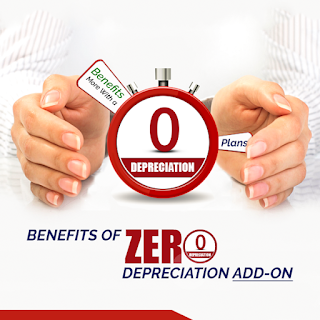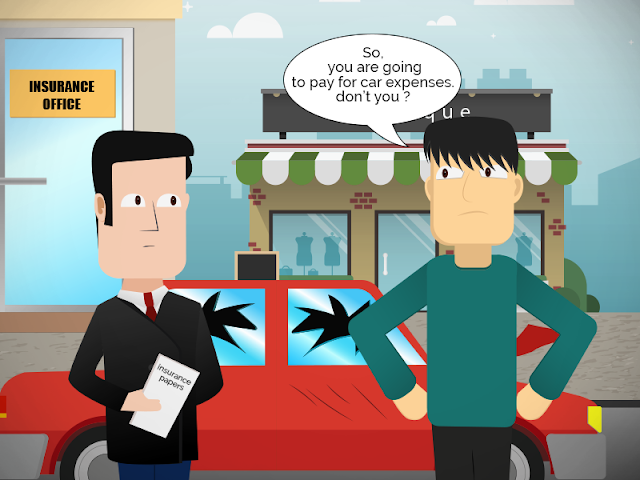Depreciation is the decrement in the value of asset after its usability. Now-a-days Zero Depreciation or Nil-Depreciation has become popular with increasing awareness among vehicle in India.
In Zero Depreciation (or Zero Depth) policy, the total amount is returned by the car insurer without considering any depreciation on the value of the vehicle. This policy offers full claim without any deduction for depreciation on the value of parts replaced.
In order to opt this policy, customers have to pay little bit more in terms of premium. However, zero depreciation policy is decidedly recommended because it removes the possibility of any out-of-the-pocket expense of the vehicle owner. This best feature of car insurance policy extends to the repairing costs of plastic, fibre, glass, and rubber parts.
There is a difference between standard and zero depreciation car policy. Standard policy provides depreciation rate of 0%-40% depending on the time of vehicle and type of material, customers have to spend some money from their pocket. While Zero depreciation policy, customers need not to spend any extra money from their pocket. In this case no depreciation is taken, thus leading 100% reimbursement on changing or depreciating parts.
In market, insurers such as ICICI Lombard General, TATA AIG General, HDFC ERGO General, Bharti AXA General are Reliance General are offering zero depreciation insurance policy. Customers can check them online also.
Usually, this coverage is offered on new car only and mostly it does not give coverage on vehicle more than three years old. Under this policy, Customers can only make a certain number of claims.
What is not covered in Zero Depreciation Insurance Policy?
Following are some terms, which are not covered under this policy:
1) Wear and Tear
2) Damage by mechanical breakdown
3) Damage due to uninsured liability
4) Damage due to uninsured items such as accessories, gas kit, tyres, bi-fuel
The tenure of this policy is for one year. After one year completion, policy has to be renewed. Customers can by Zero depreciation coverage online while purchasing car policy.
Also read
In Zero Depreciation (or Zero Depth) policy, the total amount is returned by the car insurer without considering any depreciation on the value of the vehicle. This policy offers full claim without any deduction for depreciation on the value of parts replaced.
In order to opt this policy, customers have to pay little bit more in terms of premium. However, zero depreciation policy is decidedly recommended because it removes the possibility of any out-of-the-pocket expense of the vehicle owner. This best feature of car insurance policy extends to the repairing costs of plastic, fibre, glass, and rubber parts.
There is a difference between standard and zero depreciation car policy. Standard policy provides depreciation rate of 0%-40% depending on the time of vehicle and type of material, customers have to spend some money from their pocket. While Zero depreciation policy, customers need not to spend any extra money from their pocket. In this case no depreciation is taken, thus leading 100% reimbursement on changing or depreciating parts.
In market, insurers such as ICICI Lombard General, TATA AIG General, HDFC ERGO General, Bharti AXA General are Reliance General are offering zero depreciation insurance policy. Customers can check them online also.
Usually, this coverage is offered on new car only and mostly it does not give coverage on vehicle more than three years old. Under this policy, Customers can only make a certain number of claims.
What is not covered in Zero Depreciation Insurance Policy?
Following are some terms, which are not covered under this policy:
1) Wear and Tear
2) Damage by mechanical breakdown
3) Damage due to uninsured liability
4) Damage due to uninsured items such as accessories, gas kit, tyres, bi-fuel
The tenure of this policy is for one year. After one year completion, policy has to be renewed. Customers can by Zero depreciation coverage online while purchasing car policy.
Also read




